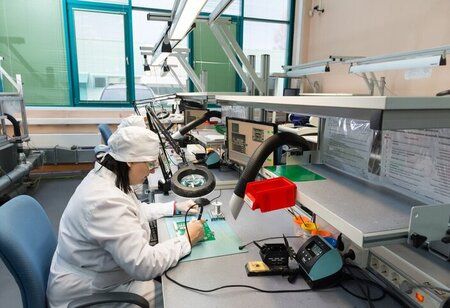
Japan committed further funds to its goal of catching up in semiconductor production by approving up to 590 billion yen (S$5.3 billion) in subsidies for the chip industry startup Rapidus.
According to Economy Minister Ken Saito, the extra funds would assist Rapidus in developing sophisticated back-end chipmaking procedures as well as purchasing equipment for manufacturing chips. The sum is in addition to the billions in public funds that the 19-month-old firm has already been awarded in its ambitious attempt to compete with market giants Samsung Electronics and Taiwan Semiconductor Manufacturing Company (TSMC) by mass producing chips in Hokkaido, the northernmost prefecture of Japan.
During a routine press conference on Tuesday, April 2, in Tokyo, Saito stated, "The next-generation semiconductors Rapidus is working on are the most important technology that will dictate the future of Japanese industry and economic growth." "Rapidus views this fiscal year as very important."
Japanese chip equipment manufacturers saw a spike in early morning trade, with Tokyo Electron rising as high as 3.2% and Disco gaining 2.3% in response to the news.
The total amounts to almost four trillion yen. Over the last three years, Japan has set a goal to reclaim some of its previous dominance in the chip industry. Prime Minister Fumio Kishida has set a financial assistance target of 10 trillion yen for chipmakers, in addition to financial support from the private sector. Japan has invested billions of US dollars in both Micron Technology's expansion at its Hiroshima facility to produce cutting-edge Dram and TSMC's first factory in Kumamoto, southern Japan.
In order to catch up to TSMC in terms of advanced fabrication technology, Rapidus is collaborating with IBM researchers in addition to its own material and nanotechnology specialists. The world's largest supplier of outsourced sophisticated chips is TSMC, with nearest competitor Samsung taking years to catch up.

